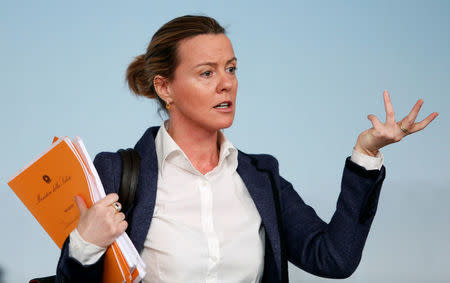Italian leader pours cold water on Fertility Day campaign
By Steve Scherer ROME (Reuters) - Italy's prime minister on Thursday poured cold water on a campaign promoted by his health minister aimed at convincing couples to have more children. "I don't know of any of my friends who had kids after they saw an advertisement," Matteo Renzi said in a radio interview. He was speaking a day after the ministry announced it would host meetings in four cities to encourage couples to have children. Italy has an ageing population and the fertility rate in Italy last year was 1.35 children per woman, compared with an EU average of 1.6. In 2015, fewer babies were born in Italy than in any year since the modern state was founded 154 years ago, and the population shrank for the first time in three decades. "If you want to create a society that invests in its future and has children, you have to make sure the underlying conditions are there," such as making sure the parents have stable jobs and day-care services, Renzi said. Health Minister Beatrice Lorenzin launched the campaign on Wednesday with the @FertilityDay Twitter handle and a series of online ads. One pictured a woman holding an hourglass next to the words: "Beauty has no age limit. Fertility does." Another pictured a man holding a half-burned cigarette. "Don't let your sperm go up in smoke," it said. The Fertility Day campaign also set off criticism on social media for appearing to blame women for putting off child-bearing, and for appearing not to understand the real causes for Italy's low birth rate. "Before bringing children into the world, women responsibly consider the future," lawmakers from the opposition 5-Star Movement said in a statement. "There's no work. People aren't having kids because it's not possible." Lorenzin is a member of a centrist bloc, considered close to the Catholic Church, that is allied with Renzi's Democratic Party. The cities of Rome, Padua, Bologna and Catania will hold public meetings on Sept. 22 - or Fertility Day - where "Fertility Villages" will be set up to host experts, associations and scientific companies who will offer advice and screening. (Reporting by Steve Scherer; Editing by Angus MacSwan)

 Yahoo News
Yahoo News 


